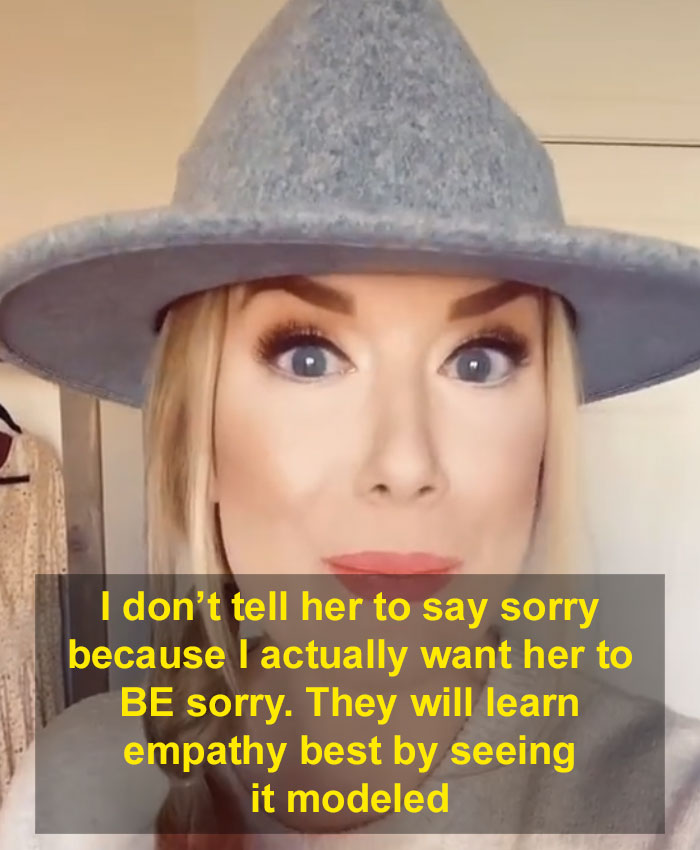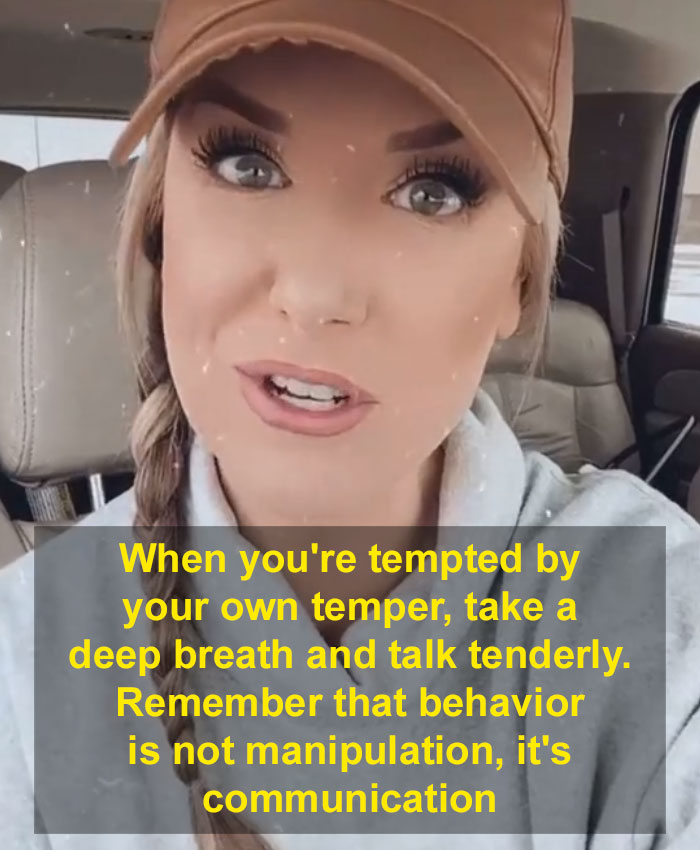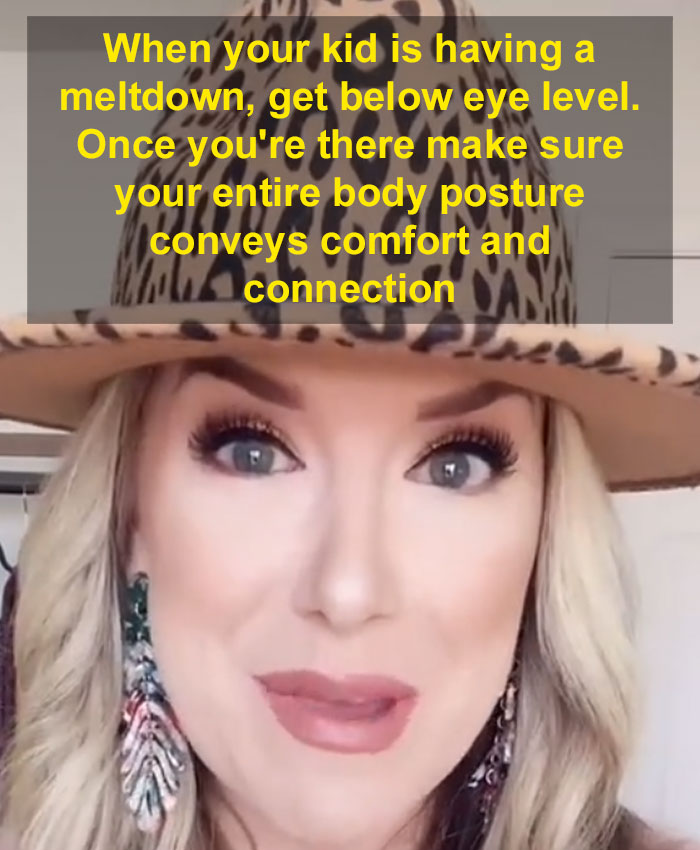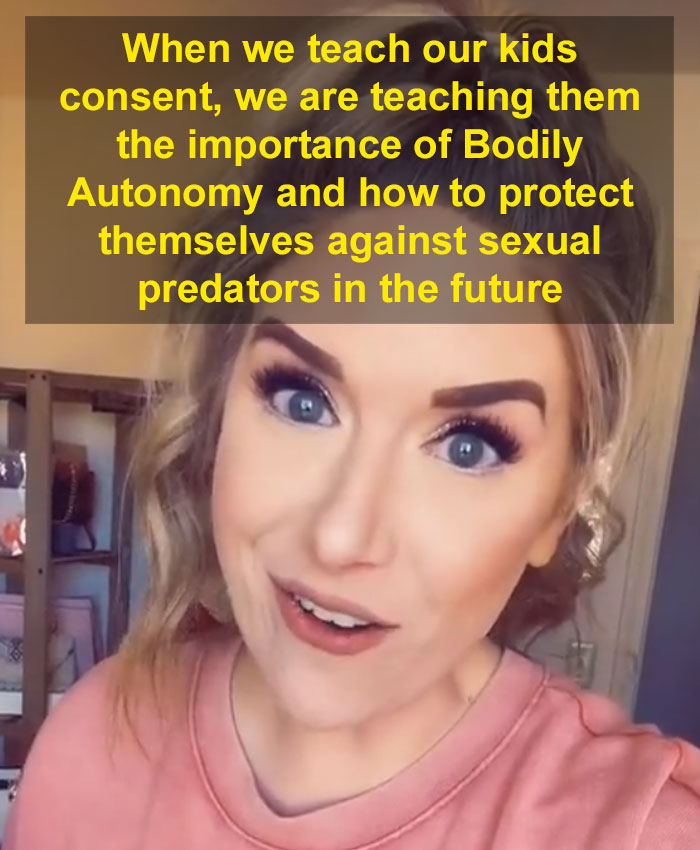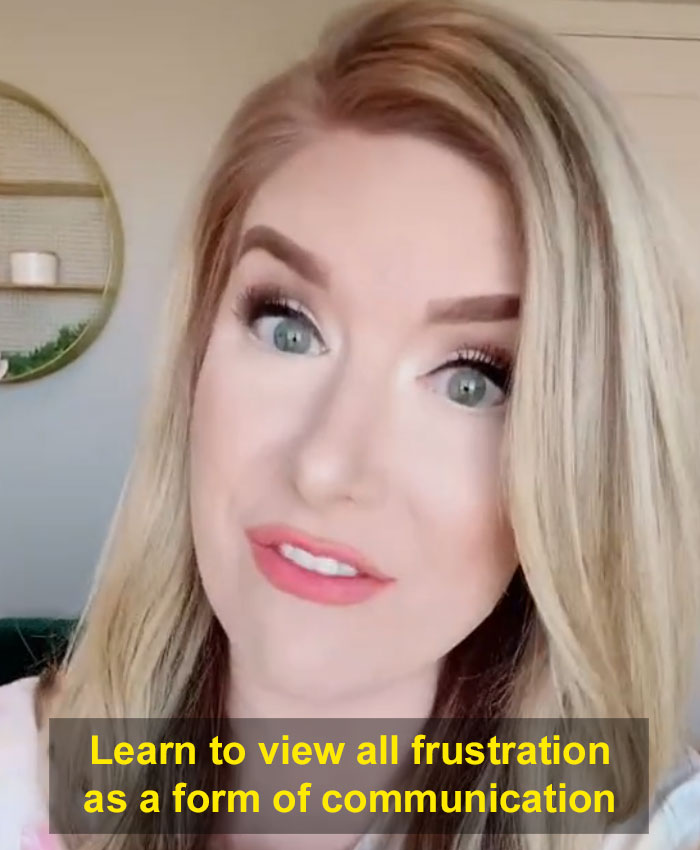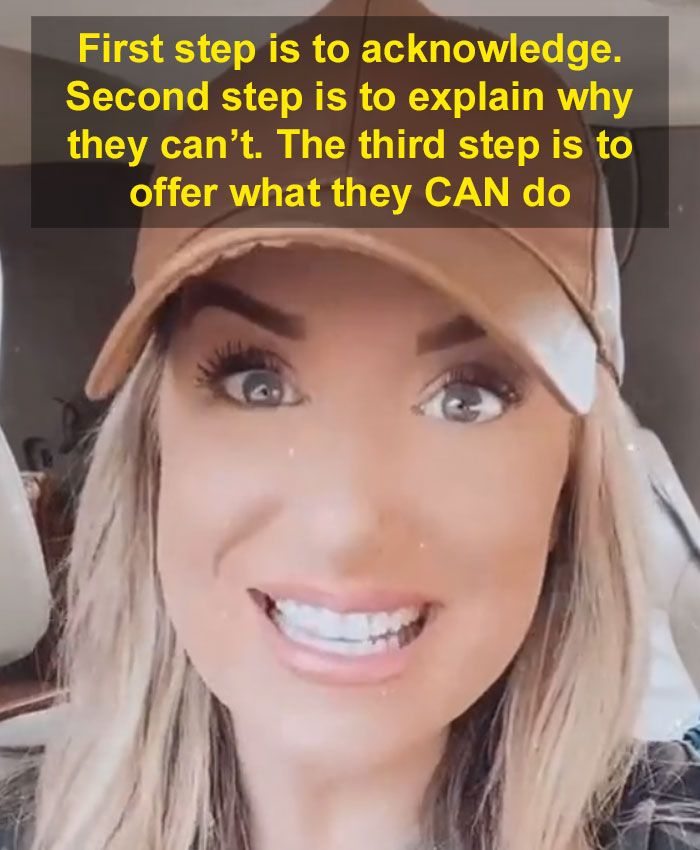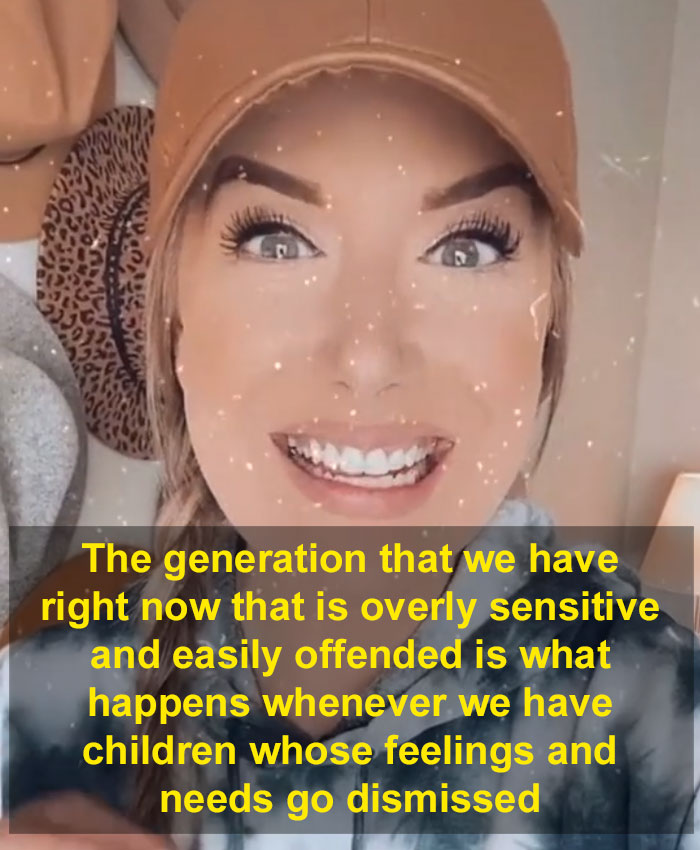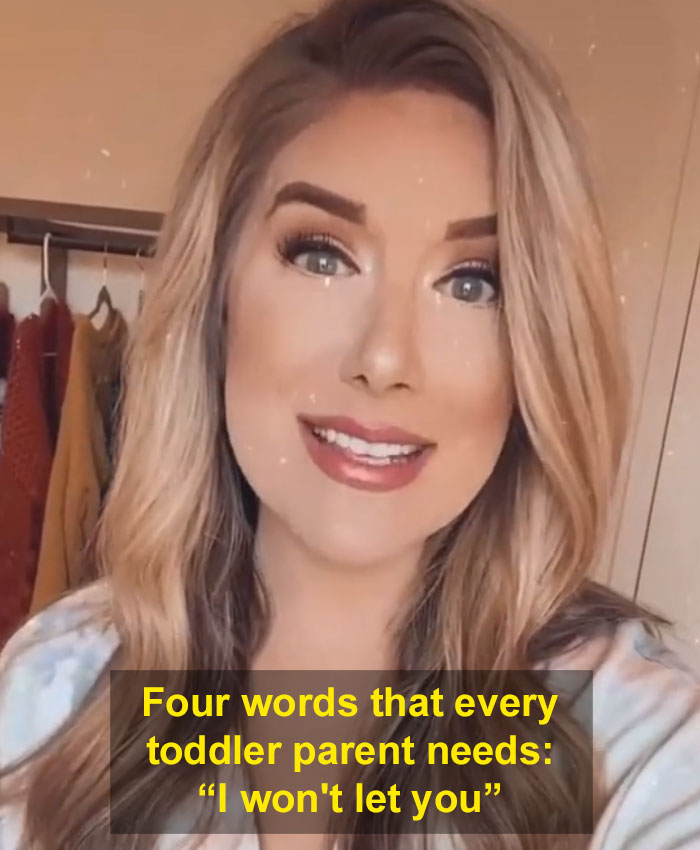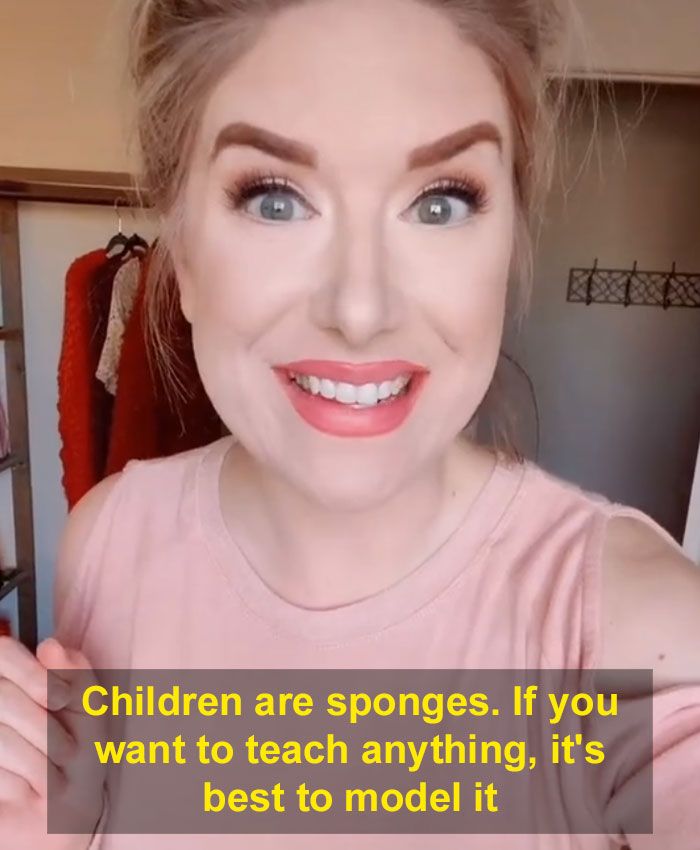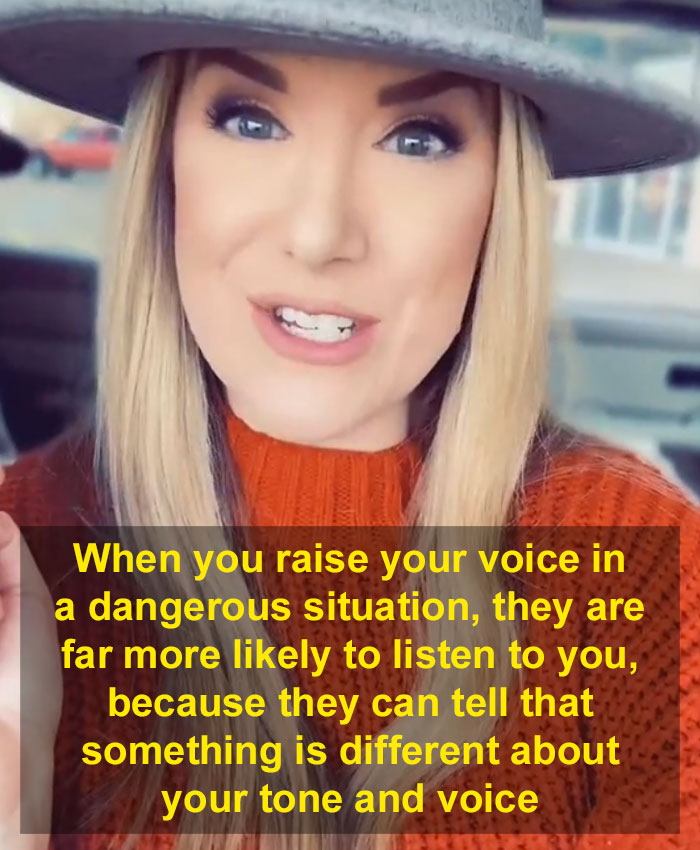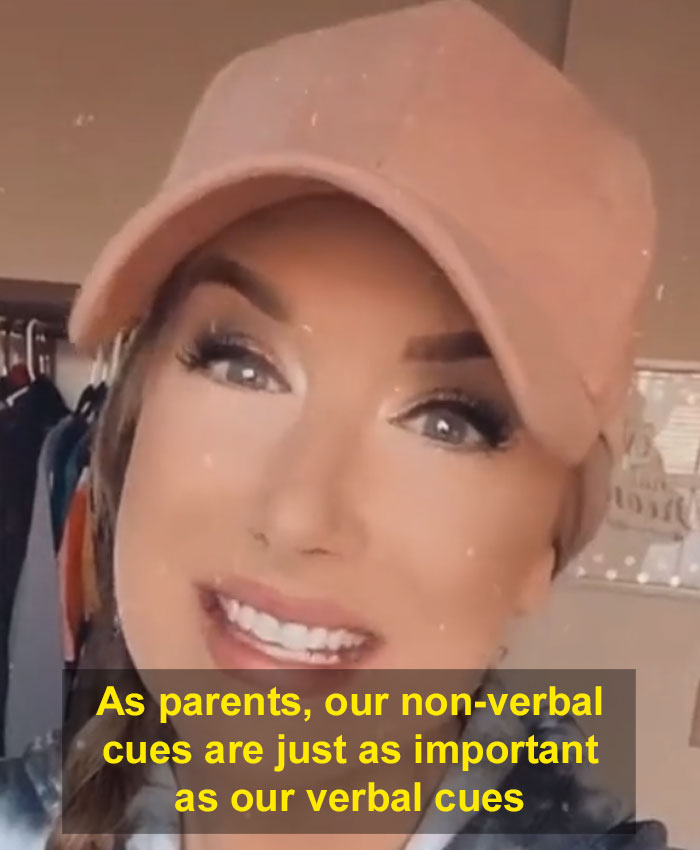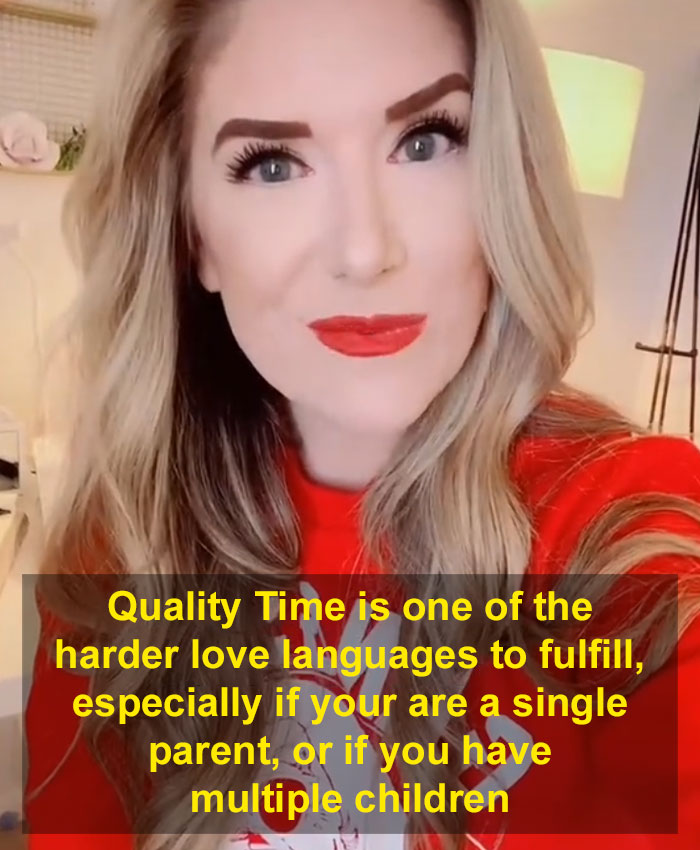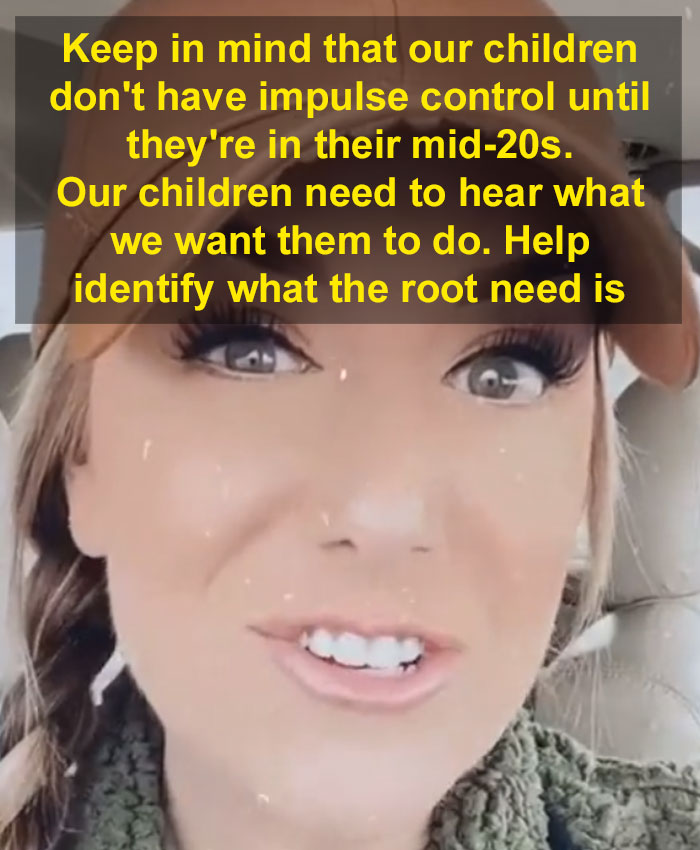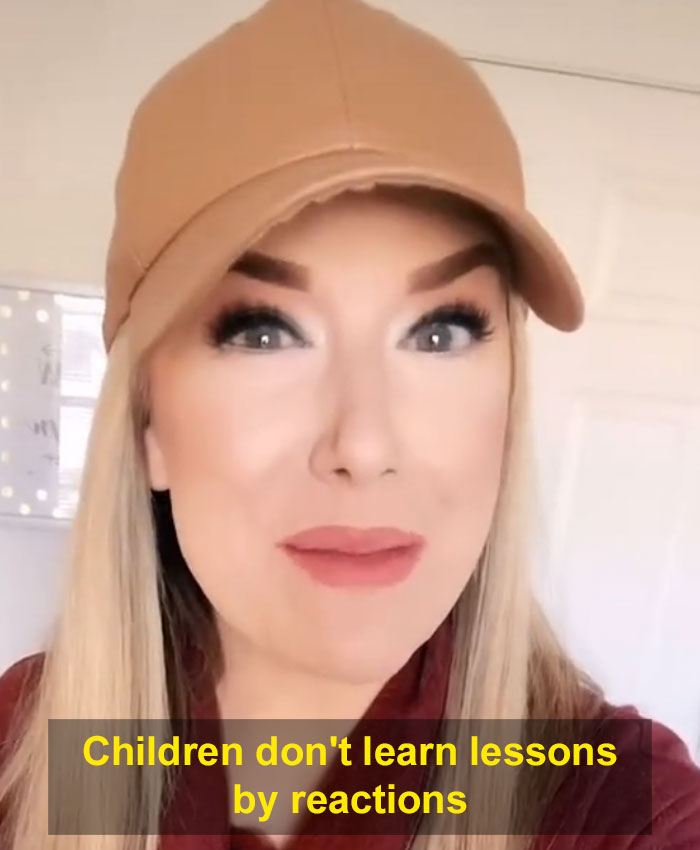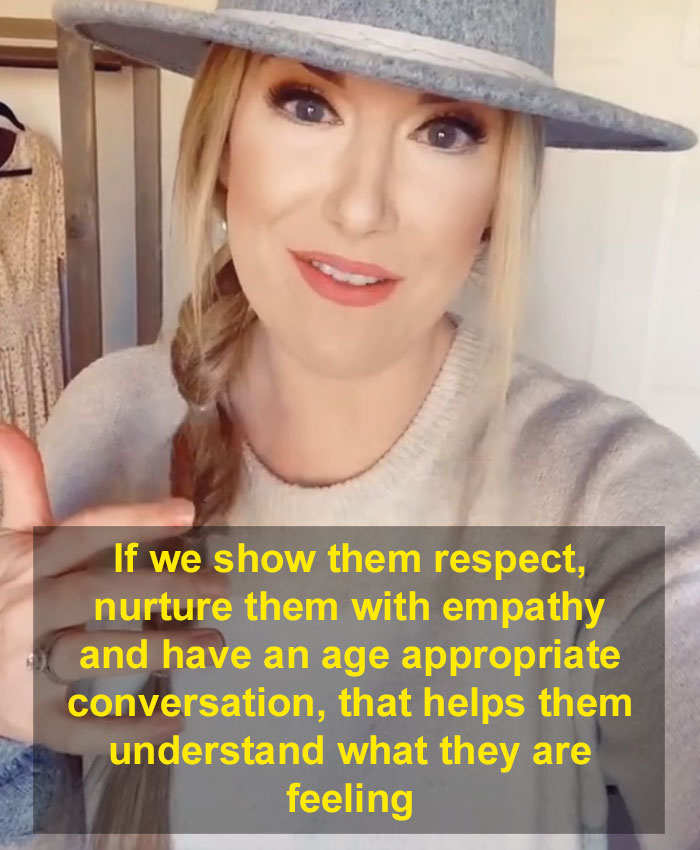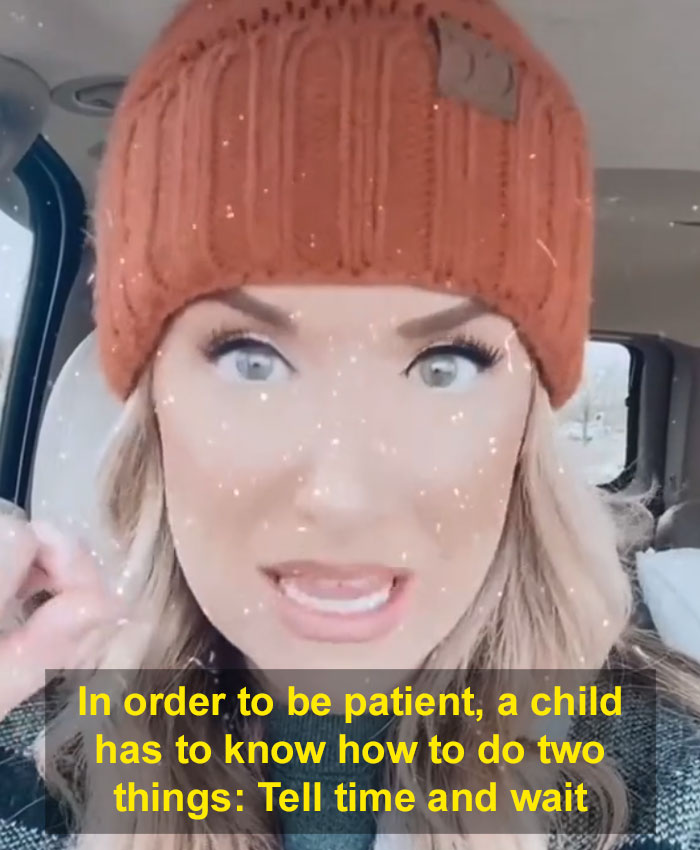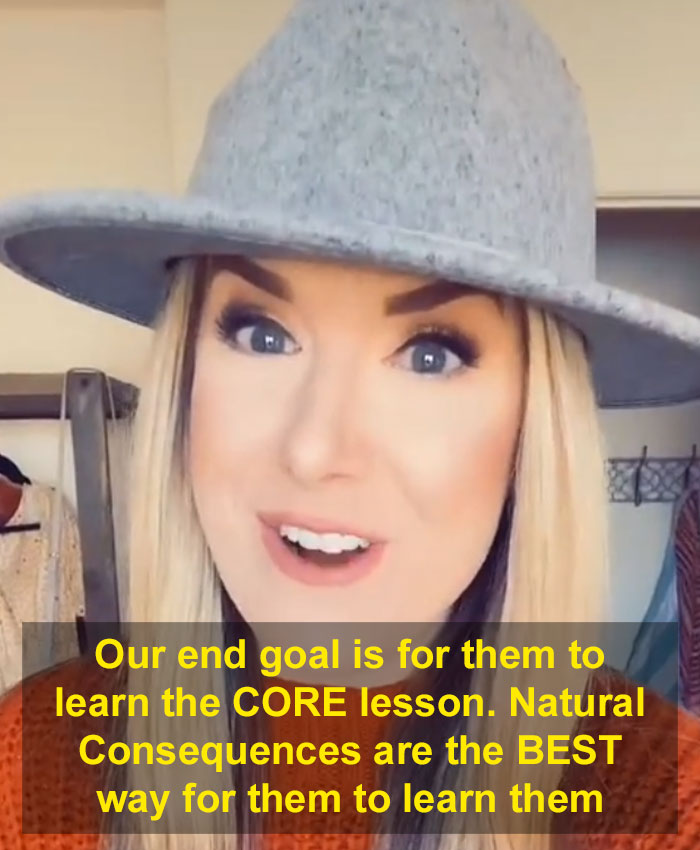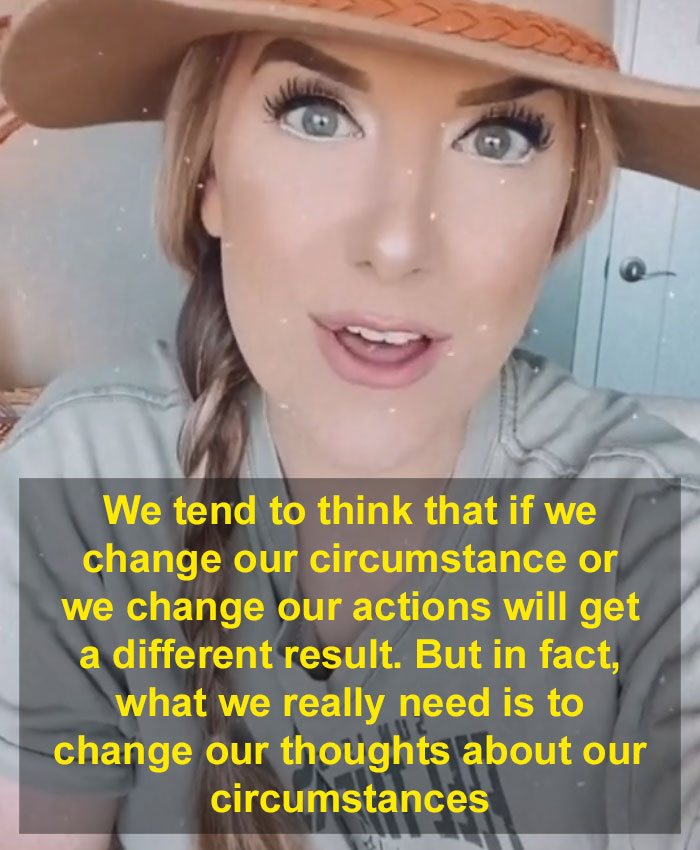
Here Are 20 Of The Best Respectful Parenting Hacks Shared By A Mom That Went Viral On TikTok
One of the hardest jobs on this planet, if not the hardest, is taking care of tiny humans and doing everything in your power to make their life as good as it can be. The worst thing is that no one gives you a manual to go with your child and if someone did, it might not necessary work on your little one. The parenting community is strong and now, thanks to TikTok, we have access to an abundance of advice on parenting. Rachel Rogers, a self-described mom mentor, has set the task to empower moms through motherhood and on her TikTok account with over 500k followers, she is sharing her best tips and hacks on respectful parenting.
Bored Panda has collected the best parenting advice given by Rachel and we can’t wait to know your best parenting hack when it comes to dealing with your child on a daily basis.
More info: TikTok
This post may include affiliate links.
I Don’t Tell My Daughter To Say Sorry Because I Actually Want Her To Be Sorry
“I'm going to tell you why I don't tell my daughter to say sorry. I don’t tell her to say sorry because I actually want her to be sorry. There’s a part of the child's brain called the prefrontal cortex that controls emotions and impulses and is responsible for calm decision-making. This is underdeveloped until they are in their mid-twenties. When you have a 2-year-old that is freaking out emotionally and impulsively hitting or screaming or kicking or biting, it actually boils down to brain development. They will learn empathy best by seeing it modeled. This actually happened for us the other day. Daughter is waking up from a nap, her daddy, who likes to tease her and mess with her a lot, started to crawl across the bed to give her a kiss. She thought he was going to mess with her but she thought he would mess with her so she hit him. He walked out super frustrated but instead of saying ‘Peyton, that was not nice, you should not hit your daddy. You need to go tell him sorry,’ I said ‘did you see that Daddy got sad? Did you see his face? his heart was hurt because you slapped him. He wasn't going to tease you, he was trying to come give you a kiss. Should we go give him a kiss?’ And she said ‘Yeah!’” [watch the video here]
Take A Deep Breath And Remember That Behavior Is Not Manipulation, It’s Communication
“Here’s a good rule of thumb. When you feel yourself getting frustrated as a parent, your own temper, take a deep breath and talk tenderly. It's normal to feel frustrated when your children are screaming, it's normal to want to yell, it’s normal to want to teach a consequence instead of actually teaching the root lesson, but you will take a deep breath and remember that behavior is not manipulation, it’s communication, you will be better equipped to keep yourself calm, and to model the behavior to your children that you want from your children.” [watch the video here]
Its sad when you hear a frustrated parent say "I swear he is doing this just to get back at me" (then proceed to treat the child as such) ...kids can totally be manipulating at times but since they can't predict consequences the same way that adults do, rarely are they trying to teach their parent a lesson and it's more likely a frustrated child not knowing how to communicate what they are feeling. :(
When Your Kid Is Having A Meltdown, Get Below Eye-Level
“It’s called the magical parenting posture and if you will implement this when your child is having a tantrum or a meltdown, it’s going to change everything. Forget eye level when your kid is having a meltdown. Get below eye-level. If they're standing, you can sit down on a floor, if they're on a bed, you can sit in a chair, if they're sitting, you can lay down. Once you're there, make sure that your entire body posture conveys comfort and connection. Your kid needs to know that you're a safe space for them to share all of their emotions and it's important that we connect before we correct. When you get into this posture with your kiddo, it immediately activates their upstairs brain that tells them that you are not a threat, which in turn immediately calms them down. Even if you're skeptical, try it out.” [watch the video here]
Teach Your Child What Is Consent
“I realized that it never really talks about consent and how unbelievably important it is to teach our children. We don't ever make our daughter kiss anyone, hug anyone, or be held by anyone that she doesn’t want to. Including us. When we teach our children consent, we are teaching them the importance of bodily autonomy and how to protect themselves against sexual predators in the future. You can also model consent as a parent by setting a boundary whenever you're touched out! Sometimes I don't want to be touched either. Now, if we’re ever in a situation where we need to leave and my daughter doesn't want to be held, I'll give her two options: Would you like me to carry you to the car or do you want to walk?” This is still teaching her bodily autonomy and consent while also letting her know we’ve got to go.” [watch the video here]
This is more powerful than teaching stranger danger. I was taught not to even talk to random people but to mindlessly obey all other adults in my life, even if they are putting their hands all over me. No adult should have authority to touch a child. But teaching body autonomy gives a child permission to fight off the uncle, cousin, coach, teacher... if something bad is happening and gives them the confidence to tell their parents about it.
There’s A Secret About Santa And When You Think You Found Out What It Is, Tell Me, And I’ll Let You Know If You’re Right
“If you want to celebrate Santa with your kids but you don't want to lie to them, this video is for you. We were talking about the topic with my family over Thanksgiving and my sister shared something that she learned at church. You tell your children ‘there's a secret about Santa and when you think you found out what it is, tell me, and I'll let you know if you're right.’ And when they come to you and say ‘I think I figured out the secret: Santa isn't real,’ you tell them ‘okay, you have to keep the secret.’ Now they don’t spoil it for other kids, you haven’t lied to them. Everybody’s happy.” [watch the video here]
I feel we should pass on the stories and legends and traditions but instead of teaching the faith of a magical jolly man, teach them to true ‘spirit of Christmas’ and why you celebrate it. Teach them that Christmas is about giving and being happy, and making other people happy, and celebrating tradition with friends and family. Teach them the story of Saint Nick and whatever else lies within your personal faith. But I think for you to teach them a lie, regardless of how it’s phrased, it sort of ruins things. Once a kid learns that the thing they’ve believed in all this time is fake, it changes things and for some, it does kinda put a damper on the holiday.
How Do You Best Deal With Toddler Tantrums?
“How do you best deal with toddler tantrums? It is very difficult to narrow down all that I teach and all I have learned to one simple tip, but I’m going to do it. Learn to view all frustration as a form of communication. Specifically communication of a feeling of a deep-rooted need. Every behavior that our children have, whether they are young or old, is communicating a feeling that they're having around a need that is going un-met. They have 5 basic needs: Survival, belonging, power, freedom, and fun and they have love languages: physical touch and words of affirmation, quality times, acts of service, and gifts. Simplest way to find out what they're actually needing is to first validate the emotion. You can say something like you seem frustrated. It's okay to feel frustrated but I need to know what you need so I can help you and you can ask them to show you what they need. Nine times out of 10 it will work for you.” [watch the video here]
Acknowledge The Emotion And Keep Offering Alternatives Until You Get A Yes
“Raise your hand if you have a toddler who screams, squeals, or whines anytime you tell them that they can't do something that they really want to do. Me too! I'm going to teach you the conversation formula that totally changed that scenario for us. The first step is to acknowledge. ‘You really want to go outside and play on your playground,’ we want to go outside and play on your playground. The second step is to explain why they can't: ‘but it's too cold to play outside right now.’ The third step is to offer what they CAN do. ‘Would you like me to build an obstacle course inside instead?’ They may protest, it’s totally normal. Acknowledge the emotion and keep offering alternatives until you get a yes.” [watch the video here]
She’s saying she wants to teach her kids to be confident, but she filters all of her pics? Wth? Looks like she needs to learn having confidence, such as being okay with posting real pics of herself.
Teach Children The Skills To Control Their Impulses And Emotions, How To Navigate Through What They Are Feeling And How To Communicate What They Need
“A lot of people think that cancel culture started because we had a bunch of children whose parents catered to their emotions all the time. This is the reason why they are hesitant about respectful parenting because that’s what they think we are doing. But you want to know the truth? The generation that we have right now that is overly sensitive and easily offended is what happens whenever we have children whose feelings and needs go dismissed. This is also where we get micromanagers. No one ever taught them the skills to control their impulses and emotions, no one ever taught them how to navigate through what they are feeling or communicate what they need and make decisions calmly, but these are the exact skills that respectful parenting teaches.” [watch the video here]
having emotions is normal, feeling sad isnt bad, feeling scared isnt bad, feeling angry isnt bad, its okay to feel these emotions and you should talk about it. Some parents try so hard to protect their children from feeling "negative" emotions rather than teach them how to deal with them...so much so that when real life happens, the kid can't cope in a world full of ups and downs.
Make Sure That You Mean What You Say
“Here are four words that every toddler parent needs to know. ‘I won't let you.’ If you have a kid that's hitting, kicking, or biting, you can say something like ‘I won't let you hit me. It’s ok to feel frustrated but our hands are for high fives and hugs, not hitting.’ They're probably going to try to push that boundary, make sure that you mean what you say. So if they continue to hit you can hold their hands and say ‘you're having a hard time not hitting, I'm going to help you by holding your hands.’ Continue to reassure them that feeling frustration is totally normal but that hitting when we're frustrated is not okay.” [watch the video here]
People keep saying their upbringing was to get hit and that was more effective but think of it this way: hitting a child, even just as a punishment for bad behavior, has been found to increase their risk of mental illness, aggression, and can cause psychological damage. Then when people do this to *their own* children, they just feed the loop
Parenting Hack: A Behavior That Gets A Reaction Will Be Repeated
“Parenting hack: a behavior that gets a reaction will be repeated. So if your toddler bites you, kicks you, and you exclaim ‘Ow, that hurts’ and then they repeat it’s because they found a button to push. So what do you do as a parent in that situation? Yes, biting, hitting, and kicking is very triggering and yes your toddler is trying to find out if there's really a boundary there. So if you want to stop the behavior first you have to stop taking it personally. This is totally age-appropriate behavior for a toddler. And second, you have to simmer down your own reactions. Stay calm! Clarify that boundary: ‘I won’t let you bite me, that hurts, but I'll get you something that you can bite safely.’” [watch the video here]
The Best Way To Teach Your Child Empathy Is To Model It
“The best way to teach your child empathy is to model it. Here's an example: our 2-year-old daughter loves to pull the dog’s ears. Obviously that hurts the dog, so she’ll yelp or whine. Instead of saying to our daughter “Peyton, we do not pull the dog's ears, you need to tell her you're sorry,” we started going to the dog and we said “Aww, Paisley, that sounded like it hurt. are you okay?” We’ll rub the dog's ears, give her a hug, and guess what happens? Our daughter starts to do the same. Children are sponges!” [watch the video here]
In Dangerous Situations It’s Necessary To Raise Your Voice
“I'm so glad somebody asked about this (Can you do a video on how you recommend kids doing dangerous activities and the best way to teach them ‘I don’t think this would work’ with, say, a stove). I do not recommend natural consequences in dangerous situations. For instance, your child is about to touch a hot stove or run out into a busy street. In fact, I believe that in dangerous situations, it's not just ok to raise your voice, it's necessary. Now, if you're always going around yelling at your kiddos and you do the same thing in a dangerous situation, they’re probably not going to listen to you. In fact, they may even laugh at you. But if you rarely raise your voice, you are usually calm and gentle with them, when you raise your voice in a dangerous situation, they are far more likely to listen to you because they can tell that something's different about your tone of voice. They can sense that something deeper is going on, so in situations like this, intervention is absolutely necessary.” [watch the video here]
If We Want To See Different Behavior From Them, We Need To Start Modeling It First
“Toddler tip! As parents, our non-verbal cues are just as important as our verbal cues. If we’re in a moment of frustration and we start rolling our eyes, rubbing our temples, or even giving another adult in the room ‘the look,’ our kiddos pick up on that and doing those things, we could be conveying a message that says to them ‘you wear me out, I blame you for my anger, I'm extremely irritable and I could blow up at any moment,’ or worse yet ‘exercising my power control and aggression is how I get what I want from you.’ Our kids are going to model that right back to us. So if we want to see different behavior from them, we need to start modeling it first.” [watch the video here]
Even an older kid my suddenly want to cry in their room after you make an expression seemingly in response to them. Mom claims it's not what it seems, but no matter how much you think raised eyebrows show attentive listening, you look like you think I'm lying...and I dont want to tell you anymore of my day; i want to cry.
Fill Your Child’s Quality Time Love Tank
“Here’s how you can tell if your child’s love language is quality time. They often ask you to do things one-on-one, they want your undistracted and undivided attention, they often interrupt your activities and if their time with you is interrupted or rescheduled, they act out. If you think your child's language may be quality time, it is vital that you fill the tank on a regular basis because if it's left empty for too long, they’ll stop asking for it and they'll become distant or even defiant. Quality time is one of the hardest languages to fulfill, especially if you're a single parent or you have multiple children. You're gonna have to get creative and I strongly encourage you to prioritize it regardless, because your child's well-being depends on it. Here are some fun ways you can fill your child’s quality time love tank. Spend some time cooking or baking something you both enjoy, play a game that they love, plan an activity with them away from home, schedule a weekly date night or watch their favorite movie or TV show.” [watch the video here]
And what ever you do, do not suggest "lets take a nap" to a child that asked to interact, and hasn't taken a nap since they were 2. I have few things I do with my mom, because she refused games so much that I lost the knack (I had no other relatives), she refuses to let me do a craft with her (I've even offered to teach one of my skills!), and she doent even want to hear more about things I like and know a lot about. I'm tired of "entertaining myself" my whole life, but I'm sick of hearing tragic news which I care about, but cant handle thinking about, because it makes me feel hopeless. You know what happens if I go read in my room? Mom comes looking for saying she's lonely! I dont care, I'm lonely sitting next to you because I know you will refuse to participate in an activity I intend as quality time. I went to my room so I could, say, experiment with facial expressions, without you watching.
Our Children Need To Hear What We Want Them To Do
“What does respectful parenting look like when your child absolutely refuses to do what you're asking them to do? The first thing to keep in mind is that our children don’t have impulse control until they're in their mid-20s. The second thing to remember is that our children need to hear what we want them to do. For instance, you could say ‘Hands by your side’ or ‘feet on the floor.’ If they test the limits, which is very likely, you can respectfully say ‘you're having a hard time not putting your feet on the floor. I'm going to help you to keep you safe.’ And the last thing you can do is help identify what the root need is. Maybe your child just needs the climb, maybe they're trying to get your attention so that they can spend time with you. All behavior is communication.” [watch the video here]
Holy filters! Her nose has almost completely disappeared. Exactly what is she trying to teach her children?
I Don’t Yell At My Daughter, Spank Her, Or Put Her In A Timeout
“I'm going to tell you why I don't yell at my daughter, spank her, or put her in a timeout whenever I'm trying to crush her behavior. The number one reason is because I want her to actually learn the lesson, because children don’t learn lessons by reactions. Yes, they might correct their behavior after you reacted, but if they only correct the behavior after you reacted, they’re simply complying because you exercised power and control, and in doing so, you're teaching them that to get what they want, they have to exercise their power and control. That’s not the lesson we want to teach our kids, is it? Here’s what we do instead that not only corrects the behavior but also teaches the root lesson. Plus it builds character and provides our daughter with the necessary skills for proper communication and management of her emotions. I ask 3 questions: number one, what is the reason for this behavior? Number two, what does my child need right now? And number three, how can I meet that need? When I take a few minutes to collect myself and calm myself down (because I want to react too sometimes) and I ask these 3 questions instead, not only I am able to correct my daughter's behavior, I’m also able to help her to understand why she's acting this way what does she need and how to better handle it.” [watch the video here]
I think timeouts are good because they allow everyone in the situation to calm down and reflect. Just don't humiliate them about it because that will make them angrier.
Raise Receptive Kids, Not Reactive Kids
“I want to raise receptive kids, not reactive kids. Lately I've been diving into a ton of research about a child’s brain development in the areas of the brain that are growing at different stages. When we discipline with threats, if we tower over them, give them ‘the look’ or if we change our voice in any way that seems aggressive, we actually activate the part of their brain that says ‘This is a threat!’ And when they feel threatened, they will either stand their ground and fight back or they’ll run away or have a complete meltdown. Does any of that sound familiar? If we model emotional regulation in the situation, show them respect, nurture them with empathy and have an age-appropriate conversation, that helps them understand what they're feeling, what they're needing, and how to better handle it. Their brain interprets that as ‘no threat’ and activates something called the prefrontal cortex which is responsible for calm decision-making, controlling impulses, and emotions. That is fascinating to me and it makes me so excited that I chose respectful parenting as a way to raise my daughter.” [watch the video here]
This is very important. When you discipline more than you nurture, it causes more problems down the road. When your child is crying in a public place, a lot of parents tend to have one of two reactions. 1. Dismiss (BAD) and 2. Scold (BAD). When you dismiss the child, you’re basically neglecting them. The child is crying because something is wrong. It could be anything from a broken bone to just being a little sad. Children don’t know how to handle things like that and if you just go like “oh you’re fine, suck it up” or you just ignore them completely, they won’t learn how to speak up later on when something is wrong, and they’ll never learn how to work through it. If you scold, that’s just as bad. Sure, you’re acknowledging that something is wrong but instead of working through it, you do something like go “shhh!!! We’re in the store, shut up!!” When I was little, if I threw a tantrum in the store, my mom would make me stand in the corner in the store, which was not only incredibly
A Patient Child Has To Know Two Things: Tell Time And Wait
“If you’re a mom, one of the most triggering things for you is probably an impatient child. Am I right or am I right? Let's say your toddler asked for a drink and you are literally standing at the sink filling up their cup, and they're screaming at you at the top of their lungs ‘I’m thirsty!’ In order to be patient, a child has to know two things: number one, tell time, and number two, wait. The part of the brain that helps with impulse control doesn't even start developing until they’re 5. I just learned this today in the coaching call with Parenting With Understanding and I’m learning more and more that our kids are still developing, their brains are still not fully developed, and they don't have all the skills we have, so we can't expect them to do the things that we can do.” [watch the video here]
Teach Your Child Natural Consequences
“(It’s cold out. I ask my daughter nicely to put on her jacket. How do I get her to put it on without a fight?) This is the perfect opportunity to teach your child natural consequences. Instead of arguing with our children whether or not to put her jacket on inside of the house, they're actually going to learn the lesson a lot better if we let them walk outside into the cold, they feel the discomfort, and they realize that the jacket is actually what is going to keep them warm. When our children experience natural consequences, not only are they going to learn the lesson like ‘Wow, jackets keep me warm,’ but they'll also learn the lesson that as parents, when we give them guidance, we are doing so for their protection, for their comfort, and for their overall well-being. We may be tempted in situations like that to want to put our foot down and to make our children do what we’re telling them to do. Our goal is for them to learn the core lesson. Natural consequences are the best way for them to learn because they teach them without creating a divide in the relational connection with the parent.” [watch the video here]
Yeah. When I was little and I got sick, my parents would always tell me that this might've been because I didn't wash my hands enough. After that, I would be very diligent about washing them.
We Really Need Is To Change Our Thoughts About Our Circumstances
“I’m going to share with you guys one of the most powerful tools I’ve ever been given for emotional regulation. It actually comes from a life coach named Brooke Castillo, and it’s called The Thought Model. It’s a tool that I regularly use in my social selling business but it also applies powerfully to parenting. It’s the acronym CTFAR and that stands for circumstance, thought, feeling, action, result. We tend to think that if we change our circumstance or we change our actions, we will get a different result. But in fact what we really need is to change our thoughts about our circumstances. For example, let’s say that your child acts out by screaming or throwing something across the room. You have the power in this moment to write a narrative about what that means. If you choose to believe my child is ‘being bad’ or if you choose to believe ‘my child is purposely trying to make me angry,’ what feelings does that create for you? Anger, frustration, disappointment, and when you feel those things, how do you act? You want to yell. Maybe you want to spank out of anger. You want to punish them, but what’s the result there? What if instead of the thought ‘my child is communicating a need. He or she needs my help.’ That then creates feelings of empathy: when you feel empathetic you want to calmly help them and the results are better for everybody. [watch the video here]
But if you’re in a situation that is harmful to YOU, do NOT change your mind about it. Get OUT of the situation. This one teaches compliance to negativity, and I’m not sure I agree...
It's all sound advice, but hard to focus on the message when I spend half my time looking for her nose and wondering why a functioning and balanced adult trying to teach kids self respect and emotional regulation feels the need to the filter herself into a stepford wife.
It's hard to take someone seriously when they intentionally look like a 2D cartoon. I don't think this is a way to teach self-respect.
Load More Replies...It's odd... I feel as though she is *almost* making good points, but not quite hitting the mark. A lot of her advice seems self-centered, not child-centered.
she's trying to manipulate the child into proper behavior. Kids don't need this level of Gordon Allport psychology to become good adults
Load More Replies...It's all sound advice, but hard to focus on the message when I spend half my time looking for her nose and wondering why a functioning and balanced adult trying to teach kids self respect and emotional regulation feels the need to the filter herself into a stepford wife.
It's hard to take someone seriously when they intentionally look like a 2D cartoon. I don't think this is a way to teach self-respect.
Load More Replies...It's odd... I feel as though she is *almost* making good points, but not quite hitting the mark. A lot of her advice seems self-centered, not child-centered.
she's trying to manipulate the child into proper behavior. Kids don't need this level of Gordon Allport psychology to become good adults
Load More Replies...
 Dark Mode
Dark Mode 

 No fees, cancel anytime
No fees, cancel anytime 


